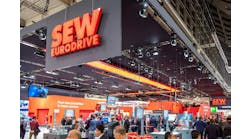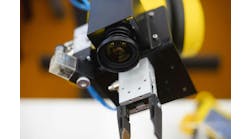Winona, Minn., - January 13 - Custom-engineered thermoplastic compounder RTP Company has established a controlled manufacturing environment dedicated to the production of clean compounds for sensitive applications in medical, electronic, and other industries at its Winona, Minn., headquarters location.
"As a global compounder of custom-engineered thermoplastic, our customers
continue to challenge us to be at the forefront of many technologies. One
common theme we hear from many markets is the desire for clean compounds,"
according to Gregg Newby, global director of marketing and business development
at RTP Company. "In response, we have established an Ultra Clean Compounding
Center to manufacture materials for applications with higher quality
requirements. The new center is a controlled production environment offering
significant improvements that allows us to now supply superior quality clean
compounds."
Currently operational with two extrusion lines, the 3,300-sq. ft. (305 m2)
self-contained Ultra Clean Compounding Center has capacity for four lines and is
capable of producing almost any product in RTP Company's portfolio. Extrusion
and post-extrusion operations (cooling, pelletizing, classifying and packaging)
are conducted inside a climate-controlled, positive-pressure environment with
interlocks to limit access.
Extruders are fully automated with touchscreen controls that allow complete
process monitoring and data acquisition. "Compounds produced in our new
facility are also ideal for applications that require extensive data recording
and robust traceability of the manufacturing process," added Newby.
Stringent operating and finished product testing protocols are used to minimize
any potential for cross-contamination during manufacture. Good manufacturing
practices are used in management and operation of the new center. "Tighter
control over the environment and specifications during manufacture results in
more consistent compounds and eliminates sources of contamination. We can
ensure that materials produced in this facility will set new industry
standards," explained Newby.
Initial demand for clean materials has primarily been driven by the medical and
electronics industries, but applications requiring improved cleanliness are quickly spreading to other industries where the cost of contamination in rejected parts is extremely high.



